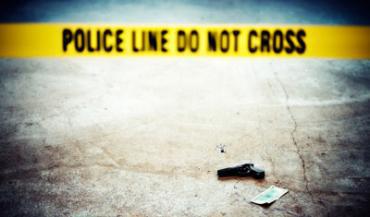
Last week it was announced that the U.S. State Department had suspended aid to St. Lucia’s police due to allegations of serious human rights abuses. The concern was related to a 2012 U.S. State Department Human Rights Report on St. Lucia which stated that;"The most serious human rights problems included long delays in investigating reports of unlawful
The “unlawful police killings” which were of particular concern to the State Department were the 12 individuals who were killed between 2010 and 2011. These killings occurred after the former United Workers Party administration launched Operation Restore Confidence. On May 30, 2010 – then Prime Minister Stephenson King announced that “There will be no refuge, no stone will be left unturned and there will be no hiding place for anyone.”
11, King added that “They will be hunted down, they will be found, they will be prosecuted, they will be judged and will be made to pay the consequences for the crimes committed against our peace loving and law abiding people.”
Perhaps the most shocking event came with the extra-judicial killings of 5 men suspected of robbing a beachfront bar in the southern town of Vieux Fort in May 2011. The killing of the “Vieux Fort Five” has sparked a national debate on how to not only deal with the crime epidemic in the island, but the threat that unchecked police violence has on the justice system.
All five of the men (John Baptiste Mc Farlan, Mitchel Cadette, Allan Lenny Louisy, Myron Dupal and Kevin Ferdinand) who were killed by the police are reported to have been on Prime Minster King’s “hit list”. This hit list was once again mentioned in Prime Minister Kenny Anthony’s address to the nation on August 21, once it had been announced that U.S. aid to the St. Lucian police had been terminated.
The justification for the termination of assistance comes under the Leahy law. Under the Leahy law, the U.S. is barred from supporting or furnishing any assistance “to any unit of the security forces of a foreign country if the Secretary of State has credible information that such unit has committed a gross violation of human rights.”
As pointed out by the Center for Economic and Policy Research's Dan Beeton "What Makes Killings by Police in St. Lucia Different from Those in Honduras?" While this is an important point which is indeed true, it can also be said that the majority of the countries in the Caribbean currently host police forces which have committed human rights abuses in relation to their participation in the United States' failed War on Drugs.
Trinidad is no different. The country’s 2012 Human Rights Report highlighted that the most pressing problems were related to “police killings during apprehension or in custody and poor treatment of suspects, detainees, and prisoners.” In 2012, Trinidadian police were responsible for the killings of 21 civilians.
Perhaps the most shocking and hypocritical example comes from Jamaica. In May 2010, the Jamaican Defense Forces – at the behest of the United States – stormed the Tivoli Gardens community in Kingston in order to arrest suspected drug kingpin Christopher “Dudus” Coke. The resulting violence left 76 individuals dead – women, children and the elderly included. A recently released report by Jamaica’s Public Defender highlighted that out of the 76 who lost their lives, it appears that 44 were extrajudicial killings. Yet the guns and money continue to flow to Jamaica.
The message sent by the United States to St. Lucia is that it is now expendable in the War on Drugs. This can either be regarded as a problem or opportunity. Without a doubt, criminal activity needs to be fought – but the root causes which breeds criminality also needs to be addressed in tandem. As demonstrated by St. Lucia, the police can never shoot their way to a safer society. The police must be held to the same laws and must be tried accordingly for murder. Policing is more than patrol trucks and shotguns; it needs to involve the police engaging with the community in efforts to counter the wide-reaching poverty and lack of opportunity.
The actions of the U.S. State Department have revealed a double standard that depending on the context, extrajudicial killings by the police are ok. The selective enforcement of the law by the United States in the Caribbean is typical of the War on Drugs, and one can only hope that this endless war will come to an end and these hard hit societies can begin to rebuild and move forward. For the first time in a long time St. Lucia is cut off from the United States, it is time for them to make their own independent decisions. It is something that not many other governments in the region can claim. Let’s see what happens.
Kevin Edmonds is a NACLA blogger focusing on the Caribbean. For more from his blog, "The Other Side of Paradise," visit nacla.org/blog/other-side-paradise. Edmonds is a former NACLA research associate and a current PhD student at the University of Toronto, where he is studying the impact of neoliberalism on the St. Lucian banana trade. Follow him on twitter @kevin_edmonds.

